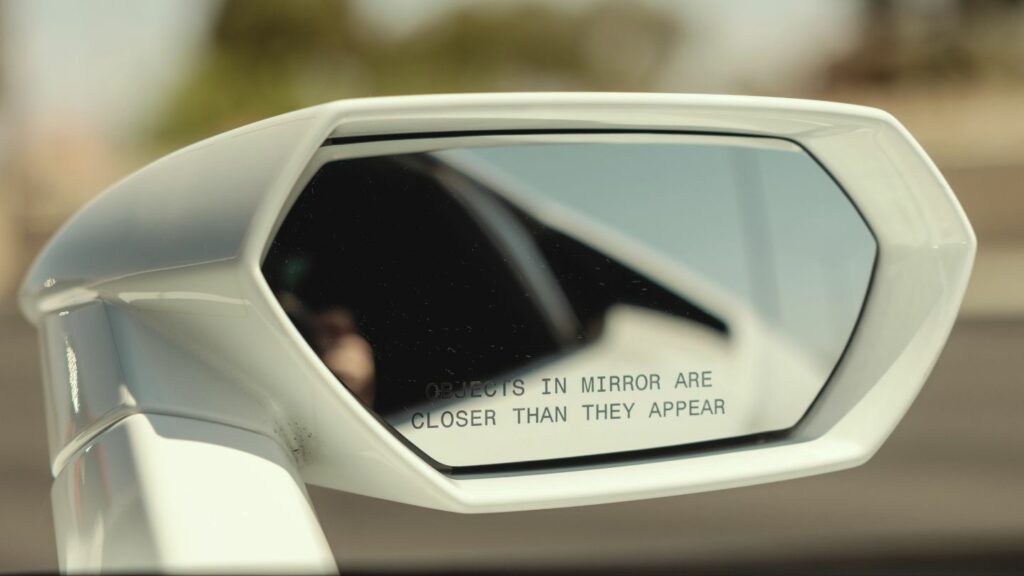Many of us feel that our income is a barrier to our goals. Even when our income increases, we feel we are on the wrong side of a wall. Eventually, we may achieve our goals, but something says we should be able to reach them sooner.
What mystery secret transforms personal finances from what appears to be a barrier into a breakthrough? It isn’t a one-time quick fix; it is the answer that keeps on working. That answer is preparation. It isn’t procrastination hiding behind preparation. It is the practice of preparation along life’s journey that changes everything.
We will look at how to tell the difference between preparation and procrastination. We will look at optimizing preparation to achieve productive work with productive results.

Objects In The Mirror
Perspective changes everything. This is why a warning sign says objects in the mirror are closer than they appear. This warning is on the passenger side of the rearview mirrors on our cars. Having this on all our vehicles tells us something about how critical perspective is.
Regarding finances, perspective looks forward in some areas and backward in others. Clarity about the past is more approachable than the future. Regarding the future, we have influence and seek to achieve agility. In the last article, Yesterday’s Lessons: Hope for a Brighter Tomorrow (https://budgeting.today/yesterdays-lessons-hope-for-a-brighter-tomorrow/), we talk about engaging our past to serve up a better tomorrow. Those would be the objects in the mirror.
Here, we want to examine a similar topic but in a way that helps answer the ever-popular question: How do we do that? Again, when it comes to tomorrow, we want to remember that control is a brittle fantasy that claims more victims than it finds victors. Our target is influence and agility.

Mapping our Journey
With our targets in scope, influence, and agility, we need to look at tools that help us prepare financially. At Budgeting Today, we teach BASE budgeting.
B – budget
A – assign
S – spend
E – evaluate
Budgeting is creating a plan for spending our expected income. It is easy to understand how budgeting is preparation. However, we need help with this application because we need a better view of how we put a budget into practice. Many people think the budget is an inflexible controller preventing them from dealing with real-life challenges or the ability to change their minds. Budgets are open to updates as long as the math works.
The next practice we teach at Budgeting Today is assignment. When income arrives, we assign it to future spending targets. This is preparation because we are not floating a target total at spending and using tracking to signal us when we overspend. If, mid-cycle, we want to change the assignments, we can. If we run a budget where we adjust the budget or assignments post-spending, our process is more about recovery than aligning or adjusting our goals.
Next is the odd one for many. We need to practice preparation with spending. You might say we budgeted and then assigned money to categories. Isn’t it just spending time now? Almost, before spending, we have two quick, low-stress tasks. (1) Check the category we are spending from and see if enough is assigned to spend currently. (2) Check the account we are spending from to ensure the money is not held in savings or some other account when spending.
Again, if we want to spend our money differently, we should follow these steps to ensure that our emotions don’t create regret or lead to buying something we will later identify as waste. Our budget is our friend, and friends don’t let friends buy regrets.
The final focus in BASE Budgeting is evaluation. On the surface, evaluation is the opposite of preparation because it focuses on the past. When people don’t make the financial progress they expect, the phrase most speak is, I don’t understand why we aren’t doing better on this income.

Compounding Insights
One time through the BASE flow helps, but it needs to create more clarity. Repeating the BASE flow cycle after cycle tends to take blind spots that align with confirmation bias and push them out of their hiding places. We look at small things as having no lasting influence. That thinking is partly because today, this week, or this month, that small amount is enough to do something we want to do.
Is it ice cream or a movie? A game console or a new phone? Car payments or something more significant? The size doesn’t matter if what we want to do can be done by spending money we would use to prepare for a bigger goal that we have to wait for.
The continual small items look small unless we evaluate them and discover how much they add up. Plus, you get good interest on money kept in checking accounts these days, so the inflation excuse is weaker than it used to be. All these small things feel insignificant today regarding retirement, saving for the down payment on a home, or the next car.
Tomorrow, we arrive at the time to get a car and look at car payments because we didn’t save up. Our downpayment on the house is smaller, or we must wait even longer to purchase it because we are determined to build up that downpayment.

The Journey Has Different Seasons
Shouldn’t we live while preparing? Yes, Yes, YES!!! What we want to do is live today without sucking the life out of tomorrow. The regret and waste we talk about so much is the fruit of living today without acknowledging what we can do for tomorrow at the same time.
Here is the money for today, and this part is for tomorrow. We don’t want to sacrifice one for the other. We also realize that it is a rare season when they both get the same share or the same attention.
Preparing for future financial needs includes irregular expenses and future expenses. These include car insurance, home insurance, and property taxes, to name a few. When these seasons arrive, we should have used sinking funds to keep those months funded on the day-to-day side of things. We have the whole year to lay aside winter heating funds for those in the north. Winter didn’t surprise us, and running short on funds on a regular income should be able to surprise us, either.
Bonus Planning
Many plan dreams when our emotions are high or when a salesperson drives our focus. We have New Year resolutions that most don’t keep but not plans beyond dealing with the little things like no more biting my nails.
What would happen if, in addition to budgeting monthly, we had planning and preparation quarterly and yearly? These don’t have to be huge distractions; without them, it is better defined as neglect. The fruit of neglect is not immediately apparent, so we may recover from these gaps in preparation repeatedly without seeing how many of them could be avoided.
We are not suggesting overplanning or making things overcomplicated. We are only saying that when things go wrong, we are faster to acknowledge what went wrong than to embrace a life pivot to avoid repeating the kind of mistake we just acknowledged.

Focus over Fantasy
To wrap up the power of preparation, we have to remember capacity. Chasing more goals doesn’t allow us to reach more goals. The best way to expand capacity is to have goals that stretch us without spreading us too thin to be effective.
We also need to recognize the concept of reach. Today, we may have to grow to be ready to reach some of our future goals. This is another aspect of preparation. We need to have a positive attitude when making plans. Beware of believing a positive attitude will magically attract your dreams into existence. Growing, learning, pivoting, and sometimes letting go of some things to reach others is part of the journey.








